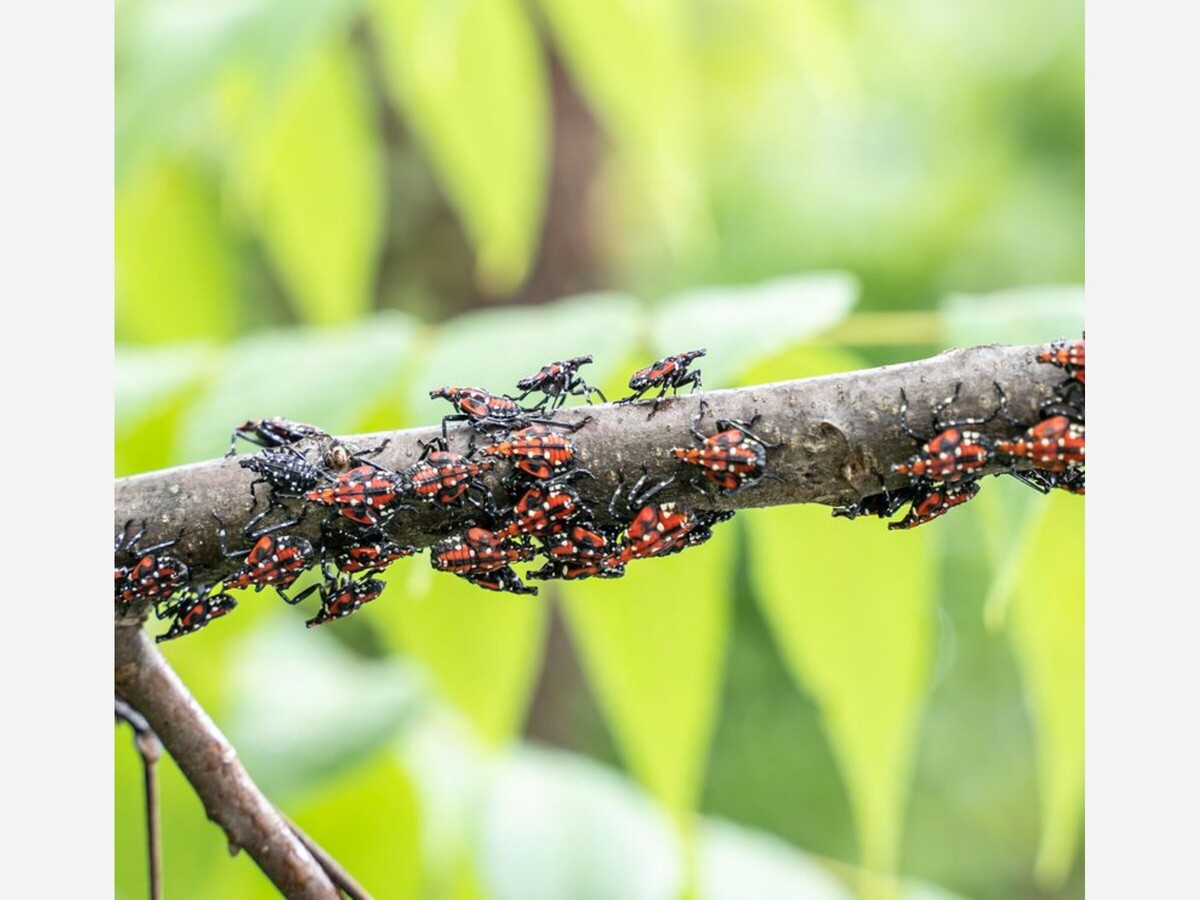Image

The spotted lanternfly has become a serious threat to Pennsylvania’s agriculture and economy. Experts are still learning to combat it, but there are things that can be done to help. Education is the first step.
The spotted lanternfly (SLF) is an invasive plant hopper native to Asia. It was first discovered in Pennsylvania in Berks County in 2014, and has since spread to 45 counties which are currently under a state-imposed quarantine. The SLF likes to feed on sap from over 70 different plant species, but it has a strong preference for plants that are important to our state’s economy including grapevines, maples, black walnut, birch, and willow. Their feeding can be detrimental.
The SLF can impact the grape, orchard, and timber industries, which contribute billions of dollars each year to PA’s economy. It’s been estimated that this pest, if not contained, could potentially cost the state $324 million annually and more than 2,800 jobs.
Spotted lanternflies excrete honeydew, a sugary waste that attracts bees, wasps, and other insects. This waste builds up on any surface below where the SLF is feeding, including furniture, cars, and patios. The buildup of waste leads to the growth of sooty mold and black-colored fungi. The mold and fungi can indirectly damage plants by coating them to the point that sunlight cannot penetrate the surface.
So what can you do to help? As a resident, you can do your part by checking for and removing all stages of spotted lanternflies before moving any items stored outdoors. Egg masses are about an inch long and resemble a smear of mud. You can scrape the eggs off of the surface they’re on and submerge them in rubbing alcohol. It may be good to keep a spray bottle of rubbing alcohol or insecticidal soap handy. If you see a spotted lanternfly, you can report it online or via phone by calling 1-888-4BADFLY. Especially if you are not inside the quarantine zone. They will spread at a rapid rate in the fall. Adults lay eggs in masses on trees, under bark, posts, lawn furniture, cars, trailers, outdoor grills, and on many other surfaces.
For more information, you can go to the PA Department of Agriculture site by clicking here.